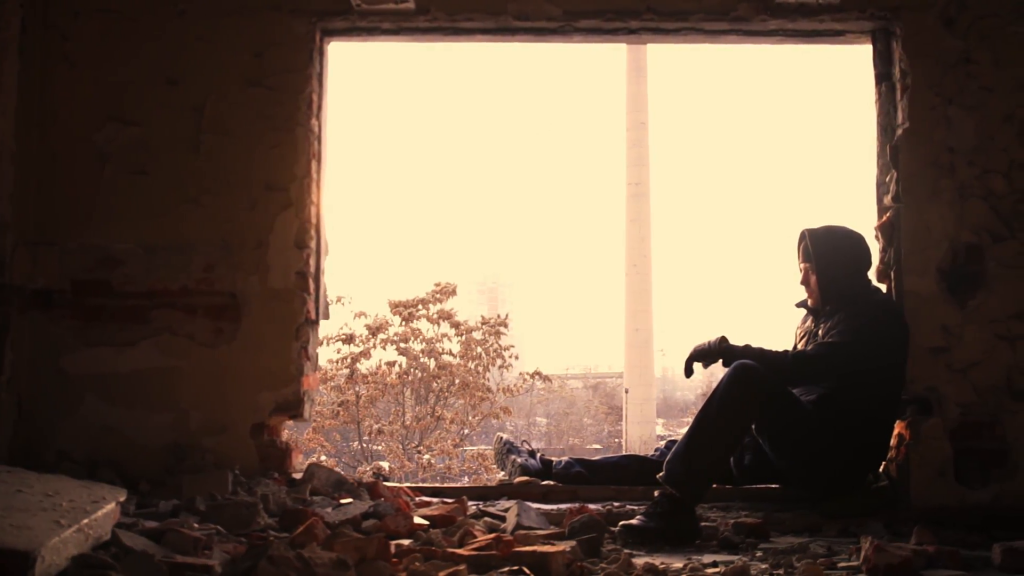Blog Post
The crushing grief of the men who lost children to abortion
By Jonathon Van Maren
Despite the BBC’s reputation for being a liberal network (Peter Hitchens once told me during an interview that our conversation was disorienting for him because the BBC would never let him answer questions at such length), their coverage of the American abortion debate is often far more balanced than that of the major liberal networks in the US. As I noted last month, a recent BBC documentary titled America’s Abortion War squarely faced the facts about abortion, and the journalist in charge of the project obviously attempted to seek out advocates on both sides of the debate. Perhaps most importantly, she did not try to sugar-coat what she found within the abortion industry.
This brings me to an exceptional report that the BBC released a week ago, titled “The men who feel left out of [the] US abortion debate.” Despite the fact that men often get pegged for pushing women into abortion (something that is, in fact, very common, as I highlighted earlier this week), there are also men who are profoundly traumatized by the loss of their children—and men who desperately attempt to dissuade their partners not to abort their children, to no avail. A heartbreaking video earlier this year highlighted one example of this, with a young man almost howling in pain outside an abortion clinic as he tried to convince his girlfriend not to abort their baby. The BBC, to their credit, takes a good hard look at these men and their pain. Give this powerful excerpt a read:
The fiercely-contested debate over US abortion focuses on the rights of the mother and foetus. But a lawsuit in Alabama by a man who says his girlfriend had an abortion against his wishes adds a third voice to the conversation, writes James Jeffrey. After the rage has dissipated, after overcoming alcoholism as a coping mechanism, even after a new and beautiful family comes on the scene, a great sadness still persists – and likely always will.
That’s the message from men talking about their experiences of abortion, a voice rarely heard among the passionate multitudes in the US abortion debate, though abortion rights supporters argue that this group is an outlier and does not speak for the majority of men involved in an abortion. Currently, the usual male perspectives that feature are legislators pushing to restrict abortion procedures, drawing the ire of pro-choice supporters accusing them of trying to legislate women’s bodies. But now would-be fathers denied by abortion are speaking out.
An Alabama abortion clinic is being sued by a man after his girlfriend had an abortion at the six-week stage, against his will in 2017. The case is the first of its kind because the court recognised the foetus as the plaintiff and the father as the representative of his baby’s estate. “I’m here for the men who actually want to have their baby,” the man told a local news agency in February. “I just tried to plead with her and plead with her and just talk to her about it and see what I could do. But in the end, there was nothing I could do to change her mind.”
Currently in the US, fathers have no legal rights to hinder the abortion of a pregnancy for which they are responsible. State laws requiring that a father be given a say in, or even notified of, an abortion have been struck down by the US Supreme Court.
“I was in my 30s living the good single life in Dallas,” says 65-year-old Karl Locker. When a woman he was seeing told him she was pregnant, he says he felt “like one of those wolves with its leg caught in a trap”. Nevertheless, he decided he had to support her – and the pregnancy. “I tried everything, I offered to marry her, to take the baby myself, or to offer it up for adoption,” Mr Locker says, explaining that he felt keeping the child would be the right thing to do. “She said she could never give her child up for adoption – it didn’t make cognitive sense.” In the end he drove the woman to the clinic and paid for the abortion. Afterwards he says he moved to California as he couldn’t bear the knowledge of what he’d done.
“I didn’t know how I was going to survive; I wasn’t going to jump off a bridge, but I probably would have drank myself to death,” says Mr Locker, who believes that reconnecting with his faith and starting a family with another woman saved him. “I’ve thought about what happened every day for the last 32 years.”
Men are usually involved in an abortion in one of four ways, all of which can leave men traumatised when they come to reflect afterwards on their roles, say those running counselling groups for post-abortive men. Sometimes men coerce a woman into having an abortion against her will; others say they will support the woman’s decision either way, while steering that decision towards abortion. Some men find out about the abortion for the first time after the fact, or the abortion goes ahead against their wishes.
What polling has occurred indicates a majority of women say they do not regret having an abortion, but fewer studies have been done on men’s reactions. What data there is for men comes from post-abortive support groups, which is dependent on men seeking them out, making it difficult to make any broad statistical observations. But the accounts include commonalities such as feelings of anger, guilt, shame and deep sadness on anniversary dates.
“Men are meant to be protectors, so there is a sense of failure – failing to protect the mother and the unborn child, failing to be responsible,” says 61-year-old Chuck Raymond, whose 18-year-old girlfriend had an abortion in the late ’70s when he was a teenager. “There is incredible guilt and shame about having not done that.”
Mr Raymond says he thought a child would have interfered with educational plans and his military training at West Point military academy, where cadets are not allowed to be married or be raising children. “Once I was involved in training, I got caught up in everything and suppressed the event, keeping it out of my consciousness. Years later though, I realised that a tragedy had occurred, and we had made a tragic choice.”
He likens the mental and emotional anguish that can follow an abortion to battlefield post-traumatic stress disorder (PTSD). The Supreme Court’s landmark Roe v Wade decision issued on 22 January, 1973, is the best-known case on abortion, for having legalised the procedure across the United States. But two later cases had more of an impact on men, says Allen Parker, president of The Justice Foundation, a conservative law centre in Texas.
After the 1976 Supreme Court decision in Planned Parenthood v Danforth, the father’s consent to an abortion was no longer required. In its 1992 Planned Parenthood v Casey decision, the court went further, saying fathers are not entitled to be notified about an abortion.
“There’s so many contradictions around all this – it’s abortion first, and be damned if otherwise,” says the Reverend Stephen Imbarrato, a Catholic priest and anti-abortion activist. Before entering the priesthood, Father Imbarrato got his girlfriend pregnant in 1975 and steered her toward having an abortion, finding out decades later she had been carrying twins. “Men regret lost fatherhood, as men are inherently called to be fathers.”
I know Reverend Imbarrato well—I most recently did street activism with him in Maryland earlier this summer when I was doing pro-life training for the California-based group Survivors—and his story is not an uncommon one. Many men in the pro-life movement have been personally impacted by abortion, and many of them lost children to abortion. That experience, in almost every instance, scarred them deeply (the recent Canadian documentary The Missing Project tells several of those stories.)
Abortion, at the end of the day, kills a child and wounds all those who loved—or should have loved—the baby that was lost.
______________________________________________
For anyone interested, my book on The Culture War, which analyzes the journey our culture has taken from the way it was to the way it is and examines the Sexual Revolution, hook-up culture, the rise of the porn plague, abortion, commodity culture, euthanasia, and the gay rights movement, is available for sale here.








